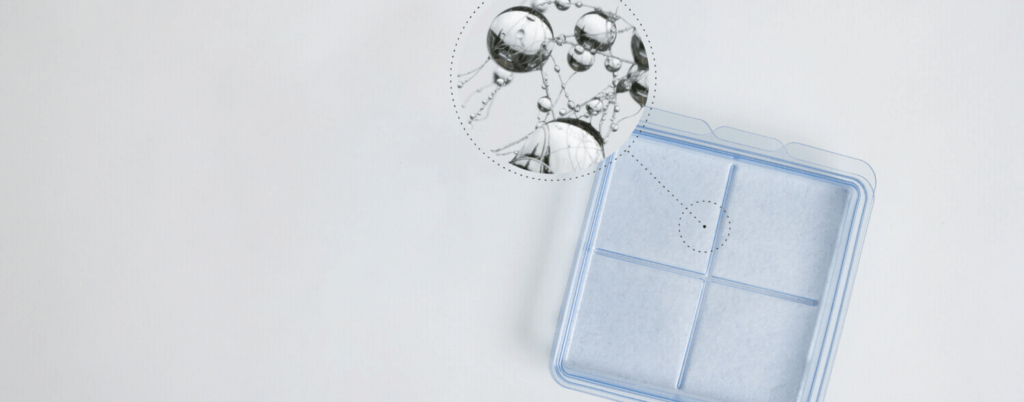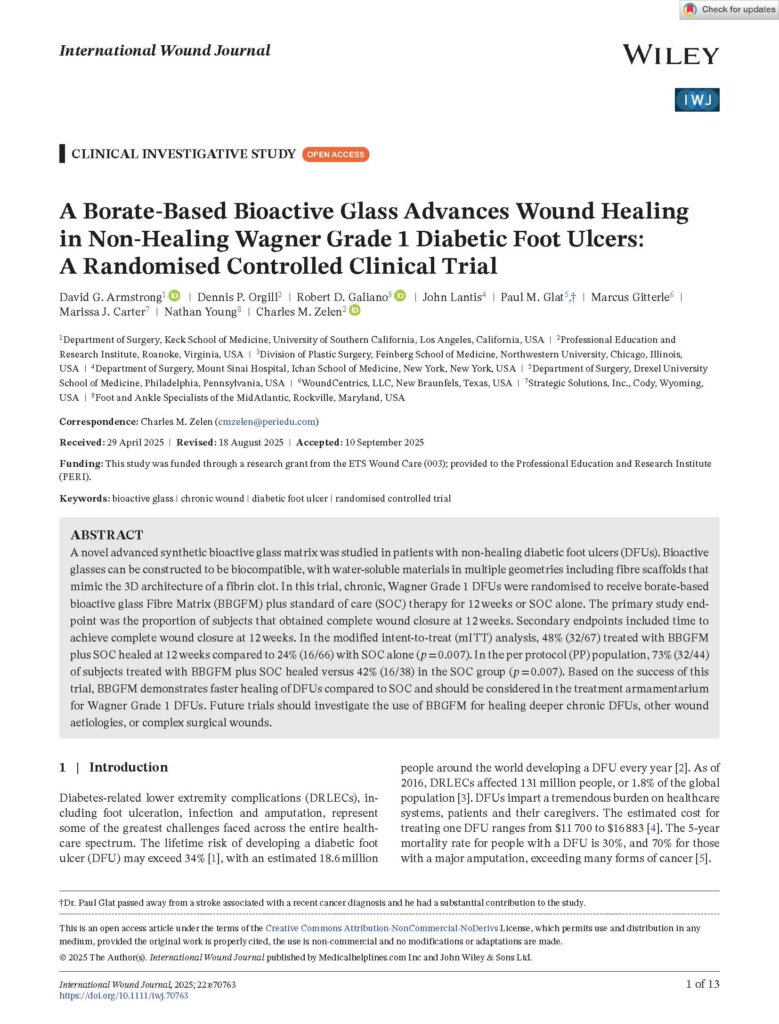148-Patient RCT
A Borate-Based Bioactive Glass Advances Wound Healing in Non-Healing Wagner Grade 1 Diabetic Foot Ulcers: A Randomised Controlled Clinical Trial
In a first-of-its-kind study amongst synthetic skin substitutes, Mirragen, a borate-based bioactive glass Fibre Matrix (BBGFM), demonstrated significantly improved wound healing at 12 weeks in Wagner Grade 1 DFUs compared to SOC, consistent with a previous pilot study and should be considered in the treatment arsenal for these types of chronic ulcers.
Key Results
- Primary Endpoint (Per Protocol): At 12 weeks, 73% of patients treated with Mirragen + Standard of Care (SOC) achieved complete wound closure, compared to 42% with SOC alone.
- Primary Endpoint (Modified Intent-to-Treat): In broader practice conditions, 48% of patients achieved complete wound closure with Mirragen + SOC at 12 weeks versus 24% with SOC alone.
This new, 148-patient study builds on ETS’s first 40-patient RCT on DFUs, which demonstrated similar wound closure outcomes. Together, the two trials confirm that the results are reproducible, reliable, and achieved under rigorous study designs —including the use of standardized offloading devices across all groups.
Every 1.2 s around the world, a DFU occurs, and every 20 s a limb is amputated. The increasing prevalence, cost and complexity of the diabetic foot, and challenges associated with healing DFUs demand safe and effective wound healing modalities.
In the current trial, there was a higher proportion of wounds healed at 12 weeks in subjects receiving BBGFM plus SOC (48%) compared to SOC alone (24%) in the mITT population. In addition, the mean healing time within 12 weeks for the BBGFM plus SOC group was 9.1 weeks versus 10.4 weeks in the SOC group and was statistically significant (p = 0.042). The proportion of wounds completely healed within 12 weeks is consistent with the preceding study conducted by Armstrong and colleagues, in which there was a 2.8-fold increase in healing rate at 12 weeks among DFUs treated with BBGFM. The significantly increased healing rates and rapid wound area reduction demonstrate that BBGFM can promote wound healing in multiple phases, particularly granulation tissue formation and re-epithelialisation in the proliferative phase. BBGFM is conformable to all wound shapes and remains in place in deep and tunnelling wounds. It can be stored at room temperature for up to 5 years.
Primary Endpoint (Per Protocol)
Percent of patients closed at 12 weeks:

Mirragen + Standard of Care (SOC)
N=44 Patients

SOC
N=38 Patients

Mirragen is a borate-based bioactive glass fiber matrix that facilitates quality tissue formation without the traditional risk of infection tissue-based products have, all in an easy to use, versatile form factor.
